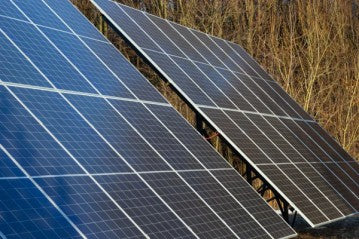
As the world seeks cleaner and more sustainable energy sources, solar power has emerged as a leading contender in the race towards a greener future. Harnessing the power of the sun, solar energy offers numerous benefits while also presenting a few challenges. If you're considering investing in solar power, this guide will help you weigh the advantages and disadvantages to make an informed decision.
Advantages of Solar Power
1. Renewable and Sustainable
One of the most significant advantages of solar power is its renewable nature. Unlike fossil fuels, which are finite resources that contribute to environmental degradation, solar energy relies on an abundant and limitless source: the sun. As long as the sun continues to shine, we can tap into its energy to generate electricity, ensuring a sustainable and clean power supply for generations to come.
2. Environmentally Friendly
Solar power is a clean energy source that produces minimal greenhouse gas emissions. By choosing solar power, you can significantly reduce your carbon footprint and contribute to mitigating climate change. The use of solar panels for electricity generation helps decrease reliance on fossil fuels, leading to cleaner air, water, and a healthier planet overall.
3. Cost Savings in the Long Run
While the initial investment in solar power systems may seem substantial, it's essential to consider the long-term financial benefits. Once installed, solar panels require minimal maintenance and can produce electricity for 25 to 30 years or more. By generating your own power, you can offset or even eliminate your monthly electricity bills, resulting in significant cost savings over time.
4. Energy Independence
Solar power offers individuals and communities the opportunity to become more energy independent. Instead of relying solely on utility companies and the grid, solar power allows you to generate your own electricity. This independence not only provides stability in the face of power outages but also reduces vulnerability to fluctuating electricity prices.
Disadvantages of Solar Power
1. High Initial Costs
One of the primary challenges of solar power is the initial cost of installation. While the price of solar panels has decreased in recent years, it still requires a considerable investment to set up a solar power system. However, it's important to note that various financial incentives, such as tax credits and rebates, are available in many regions, making solar power more affordable and accessible.
2. Intermittent Energy Source
Solar power is dependent on sunlight, meaning it can be intermittent. Cloudy days, nighttime, and seasonal variations can affect the amount of energy generated. This intermittency makes it necessary to have backup power sources or energy storage systems in place to ensure a consistent power supply. However, advancements in energy storage technologies, such as batteries, are addressing this challenge and improving the reliability of solar power systems.
3. Space Requirements
To generate a significant amount of electricity, solar panels require adequate space for installation. This can be a challenge for those with limited roof space or smaller properties. However, advancements in solar panel efficiency have reduced the space requirements, allowing for more power generation within a smaller footprint. Additionally, ground-mounted systems or solar canopies can be viable alternatives for properties with space limitations.
Conclusion
promotes energy independence. Despite some challenges, such as the initial investment and intermittency, solar power continues to gain popularity as technology advances and costs decrease.
As a potential buyer, it's crucial to consider these advantages and disadvantages to determine if solar power is the right choice for you. Consulting with solar energy professionals and exploring available financial incentives in your area can further support your decision-making process.
Embracing solar power is not only an investment in your own future but also a commitment to a greener and more sustainable planet. With the constant evolution of solar technology, it's an exciting time to explore the potential of solar power and be a part of the clean energy revolution.
Remember, harnessing the power of the sun can be a significant step towards a brighter and more sustainable future for all.

0 Kommentare